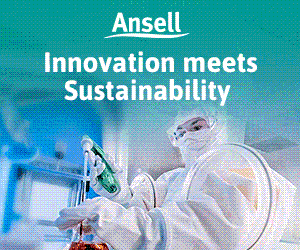Milk products seized in US in after FDA investigation
Valley Milk Products LLC of Strasburg, Virginia, had refused to recall products following an FDA request after an inspection
Earlier this week the US Food and Drug Administration announced the seizure of more than 4 million lbs of product produced by Valley Milk Products LLC of Strasburg, Virginia.
The seized products include dry nonfat milk powder and buttermilk powder packaged in 40 lb and 50 lb bags for further manufacturing, worth nearly US$4 million.
The US Department of Justice filed the complaint, on behalf of the FDA, in the US District Court for the Virginia Western District, alleging that the seized products are adulterated under the Federal Food, Drug, and Cosmetic Act.
During an FDA inspection of Valley Milk, owned by the Maryland and Virginia Milk Producers Cooperative Association Inc. in Reston, Virginia. from July – September 2016, FDA investigators observed poor sanitary practices and reviewed the company’s records, which showed positive results for Salmonella in the plant’s internal environmental and finished product samples.
FDA investigators observed residues on internal parts of the processing equipment after it had been cleaned by the company and water dripping from the ceiling onto food manufacturing equipment.
In addition, environmental swabs collected during the inspection confirmed the presence of Salmonella meleagridis on surfaces food came into contact with after being pasteurised.
Throughout the investigation, the FDA worked closely with the Virginia Department of Health and Virginia Department of Agriculture and Consumer Services.
'The FDA urged Valley Milk to conduct a voluntary recall of the implicated products,' said Melinda K. Plaisier, the FDA’s associate commissioner for regulatory affairs.
'The firm refused to recall and, as a result, we have had to intervene and seize this adulterated food to prevent it from reaching consumers who could be exposed to Salmonella from these products.'
The FDA used a bacterial typing tool called whole genome sequencing (WGS) to link the samples collected in the facility over time. WGS technology can show the relationship among isolates of bacterial pathogens found in the environment, a food source or a person who became ill from consuming contaminated food.
The sampling results indicate that the Salmonella strains from 2016 are nearly identical to Salmonella strains found at the company in 2010, 2011 and 2013.
Valley Milk Products has since released a statement saying it is working with the FDA to resolve any concerns related to milk powder recently placed under hold by the government. It said: 'Multiple tests conducted by third parties on the milk powder have been negative for the presence of Salmonella.'
It added:'There are no reported illnesses related to this issue, and consumers and customers are not being asked to take any additional action. Out of an abundance of caution, we have not produced any dry milk powder at Valley Milk since the FDA initiated its inspection in late July.
'We are confident in the work of our farmers, our dairy industry and government regulators that allows us to continue to produce a safe and nutritious product for our customers.'
Valley Milk is capable of processing over 200m lbs of milk each year in the form of cream, butter, dried milk powder and condensed milks. These ingredients are used in making bread, ice cream, baby food and frozen dinners.




